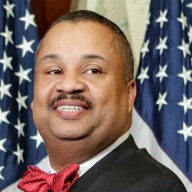By Jonathan Stempel
NEW YORK (Reuters) – A federal appeals court on Thursday restored an $18 million jury verdict against New York City and in favor of a man who sued after spending 22 years behind bars for a rape he did not commit. The 2nd U.S. Circuit Court of Appeals said the city intentionally or recklessly deprived Alan Newton of his due process rights by taking more than a decade to locate a rape kit that showed his DNA did not match samples from the victim. Newton, 53, has been free since July 2006 and is now a research associate with The City University of New York Black Male Initiative.
“I have been home for 8-1/2 years, waiting to receive some kind of justice,” Newton said in a phone interview. “I’m excited it’s happening.”
Nicholas Paolucci, a spokesman for the city’s law department, said, “We are reviewing the decision.”
Newton was found guilty in 1985 of rape, robbery and assault. While in prison, he pressed the city to find and test the rape kit, which had not undergone DNA testing before trial, only to be told repeatedly it had been destroyed. Police finally found the kit in a Queens warehouse in 2005. Newton sued the city after he was freed.
In setting aside the jury’s October 2010 verdict, U.S. District Judge Shira Scheindlin in Manhattan acknowledged “grave deficiencies” in the city’s evidence management system, but said Newton did not deserve damages because he did not show that any city official had been more than negligent. Circuit Judge Raymond Lohier, however, wrote for the appeals court that while defendants are not denied due process simply when evidence is lost, they deserve a “faithful accounting” of evidence in the city’s possession – which Newton did not get. “The city, through the poor administration of its evidence management system, perpetuated a practice or custom that was wholly inadequate,” Lohier wrote. “Had Newton accepted the city’s recklessly erroneous representations about the evidence at face value, he might have remained in prison far longer than he did.” John Schutty, Newton’s lawyer, called the decision “a clear and unequivocal victory.”
The appeals court also ordered Scheindlin to review whether the city denied Newton his constitutional right of access to the courts. Legal fees must also be determined.
“I think the city has learned its lesson,” Newton said. “It puts more trust back in government when the city remedies its mistakes quickly, rather than wait years.”
The case is Newton v. City of New York, 2nd U.S. Circuit Court of Appeals, No. 11-2610.
(Reporting by Jonathan Stempel in New York; Editing by Tom Brown)


















